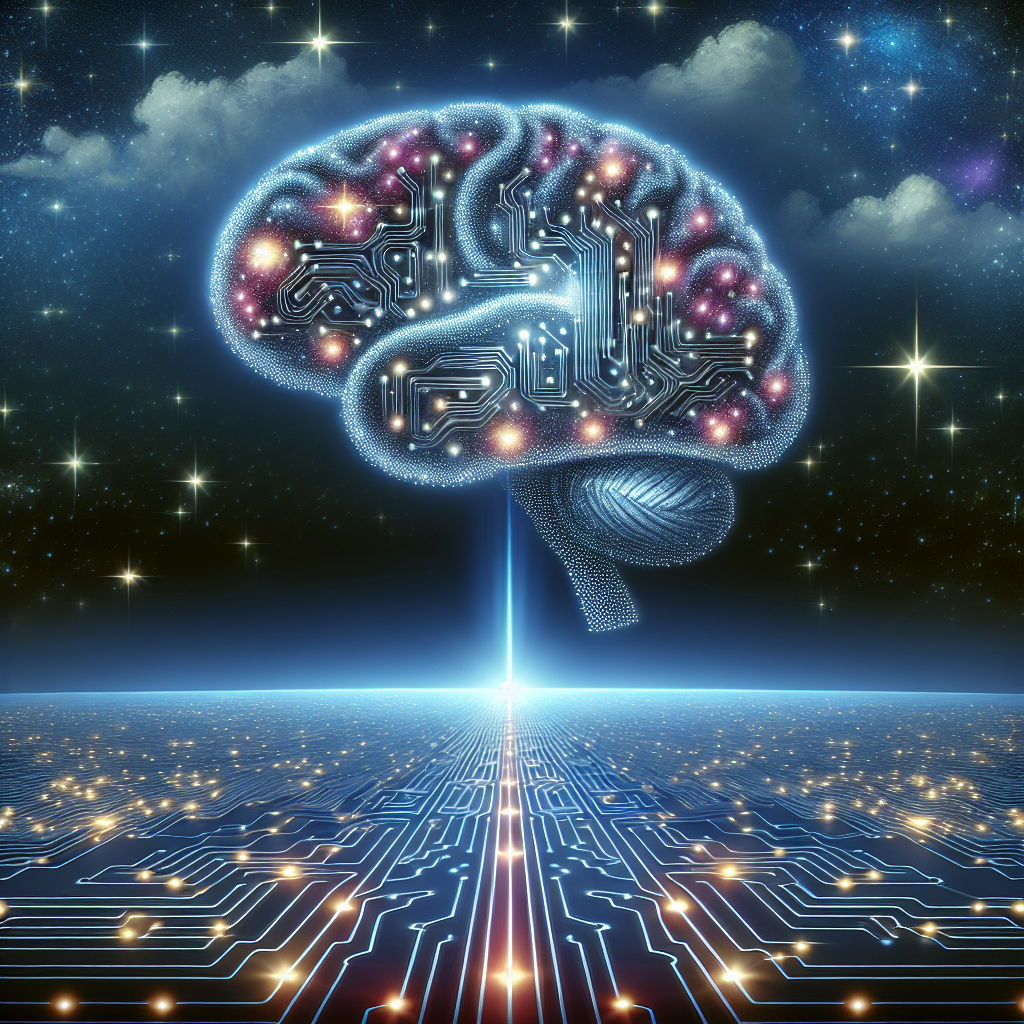The Quest for AGI: Challenges and Opportunities
Artificial General Intelligence (AGI) is the holy grail of artificial intelligence research. It refers to a hypothetical AI system that can understand and learn any intellectual task that a human being can. AGI is seen as the next step in the evolution of AI, going beyond the narrow applications of current AI systems to achieve human-like cognitive abilities.
The quest for AGI is a daunting challenge that has captured the imagination of researchers, entrepreneurs, and policymakers around the world. The potential benefits of AGI are immense, from revolutionizing healthcare and education to transforming industries and driving economic growth. However, the road to AGI is fraught with challenges and uncertainties, which must be addressed before AGI can become a reality.
In this article, we will explore the challenges and opportunities of the quest for AGI and discuss the key issues that need to be addressed to realize the full potential of AGI. We will also address some frequently asked questions about AGI and provide insights into the future of AI.
Challenges of AGI
1. Complexity: One of the main challenges of AGI is the sheer complexity of human intelligence. The human brain is a highly complex and interconnected system that is still not fully understood by scientists. Replicating this level of complexity in an AI system is a monumental task that requires a deep understanding of neuroscience, cognitive psychology, and computer science.
2. Learning: Another challenge of AGI is the ability to learn and adapt to new tasks and environments. Human intelligence is characterized by its ability to learn from experience, make decisions based on incomplete information, and generalize knowledge to new situations. Building AI systems that can replicate these abilities is a major challenge that requires advances in machine learning, reinforcement learning, and cognitive science.
3. Creativity: Human intelligence is also characterized by its ability to think creatively, solve novel problems, and generate new ideas. Replicating these creative abilities in AI systems is a major challenge that requires breakthroughs in computational creativity, cognitive psychology, and artificial neural networks.
4. Ethics: The quest for AGI raises ethical concerns about the impact of AI on society, privacy, and human rights. AGI has the potential to revolutionize industries, create new jobs, and improve our quality of life. However, it also raises concerns about job displacement, algorithmic bias, and the misuse of AI for malicious purposes.
Opportunities of AGI
1. Healthcare: AGI has the potential to revolutionize healthcare by enabling personalized medicine, early disease detection, and precision surgery. AGI can analyze vast amounts of medical data, identify patterns and trends, and provide doctors with real-time insights to improve patient outcomes.
2. Education: AGI can transform education by personalizing learning experiences, adapting to individual student needs, and providing teachers with real-time feedback on student performance. AGI can create interactive learning environments, deliver personalized tutoring, and enhance the quality of education for students of all ages.
3. Industry: AGI can revolutionize industries by automating routine tasks, optimizing processes, and accelerating innovation. AGI can analyze large datasets, identify trends and patterns, and generate insights to help businesses make better decisions and drive growth.
4. Research: AGI can accelerate scientific research by analyzing complex datasets, identifying correlations, and generating hypotheses. AGI can help researchers in fields such as medicine, climate science, and materials science to make breakthrough discoveries and advance human knowledge.
FAQs about AGI
Q: What is the difference between AGI and narrow AI?
A: AGI refers to a hypothetical AI system that can understand and learn any intellectual task that a human being can. Narrow AI, on the other hand, refers to AI systems that are designed to perform specific tasks, such as image recognition, speech recognition, or natural language processing.
Q: When will AGI be achieved?
A: The timeline for achieving AGI is uncertain and depends on the pace of technological progress, scientific breakthroughs, and research funding. Some experts believe that AGI could be achieved within the next few decades, while others believe that it could take longer to realize the full potential of AGI.
Q: What are the ethical implications of AGI?
A: The quest for AGI raises ethical concerns about the impact of AI on society, privacy, and human rights. AGI has the potential to revolutionize industries, create new jobs, and improve our quality of life. However, it also raises concerns about job displacement, algorithmic bias, and the misuse of AI for malicious purposes.
Q: How can we ensure that AGI is developed responsibly?
A: To ensure that AGI is developed responsibly, it is essential to establish clear guidelines, ethical principles, and regulatory frameworks for the development and deployment of AI systems. This includes transparency, accountability, fairness, and inclusivity in AI research and development.
In conclusion, the quest for AGI is a monumental challenge that has the potential to revolutionize industries, transform society, and advance human knowledge. While the road to AGI is fraught with challenges and uncertainties, the opportunities of AGI are immense, from revolutionizing healthcare and education to accelerating scientific research and driving economic growth. By addressing the key issues and ethical concerns of AGI, we can realize the full potential of AI and shape a better future for humanity.

